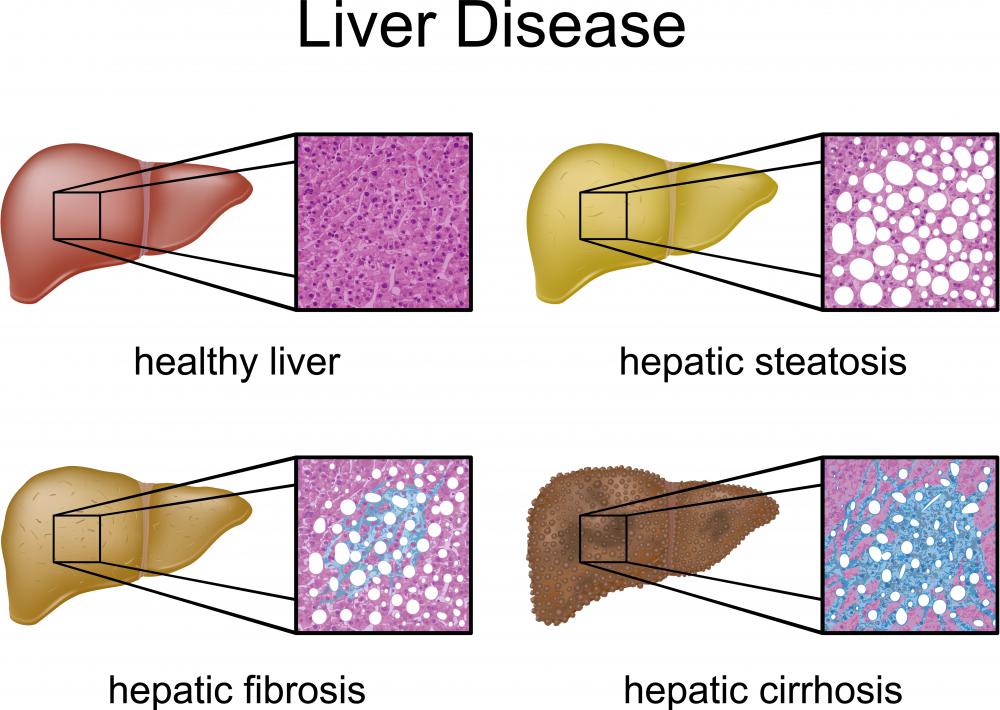At WiseGEEK, we're committed to delivering accurate, trustworthy information. Our expert-authored content is rigorously fact-checked and sourced from credible authorities. Discover how we uphold the highest standards in providing you with reliable knowledge.
What Causes Edema?
Edema is a medical condition that is characterized by fluid retention in tissues of the body, which produces swelling. Typically, most of us think of swollen legs, feet, ankles, or hands when we hear this term. However, edema can affect any part of the body. In fact, it may impact whole organs or the entire body at once.
The mechanism that causes edema is related to an impaired trade of fluids between chambers that surround tissue and organs. Specifically involved are intravascular compartments, or those that reside within the vascular and cardiac systems, and extravascular compartments, or those that involve the cellular and lymphatic systems. Within these small spaces are capillaries, the small blood vessels charged with the task of exchanging blood, water, and electrolytes between these compartments. The problem begins when capillaries begin to leak, permitting fluids to seep and accumulate into neighboring tissues. Unfortunately, the kidneys perceive this event as a signal to retain more water and sodium, which creates even more fluid to circulate and become trapped.

There is more than one underlying condition that causes edema. Certainly, it may be a secondary symptom of a serious condition, such as kidney disease. Congestive heart failure and cirrhosis of the liver causes edema of the lungs and an accumulation of fluids in the abdominal cavity, respectively. Chronic venous insufficiency causes edema as the result of disease or an injury compromising the strength of the veins in the legs. There are also occasions in which fluid retention and swelling is only temporary and expected, such as during pregnancy or menstruation.

Aside from potentially damaging the heart or lungs, edema diminishes the overall circulation of blood and the delivery of oxygen, as well as arterial and vein elasticity. It may also promote the formation of fibroids and scar tissue, which impairs fluid exchange even more. If the legs are involved, swelling can make walking or standing painfully difficult.

Diagnosis of edema begins with a complete intake and review of the patient’s medical history, as well as any contributing lifestyle factors. If pulmonary edema is suspected, X-rays or a CT scan may be ordered. In addition, it is very likely that blood and urine samples will be tested to determine if there are excessive levels of certain proteins in either, which may be an indication of kidney disease.

Treatment of edema typically involves the use of diuretics to help regulate kidney output of fluids and sodium, as well as the implementation of a salt-restricted diet. However, these drugs are not appropriate for those impacted by edema due to pregnancy, menstruation, or chronic venous insufficiency. In the case of the latter, in particular, there are several non-invasive strategies to combat fluid retention and swelling. These include increased movement and exercise of the extremities, regular elevation, and wearing compression stockings.
AS FEATURED ON:
AS FEATURED ON:
















Discussion Comments
what is extracellular and intracellular edema? it is a very, very important question!
Everyone has had some type of edema at some point in their life. Fortunately, not all edema is a sign of something bad. Many times, we get edema just from sitting in one position for too long or eating too much salt with our food.
Other “normal” causes of edema can be premenstrual symptoms or pregnancy.
There are also some medications that can cause edema such as: vasodilators, calcium antagonists, NSAID’s, and estrogen.
my husband has had edema in his legs and stomach for over 5 months now.they have run different tests, done x rays, ct scans,dopplers and heart test and everything has come back normal. no one can figure it out.
Post your comments